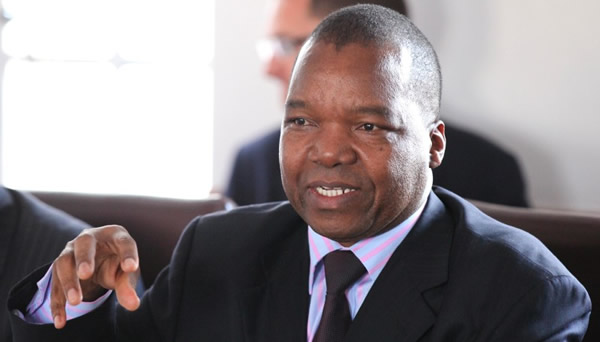RBZ seeks to broaden financial inclusion

Happiness Zengeni and Tinashe Makichi
The Reserve Bank of Zimbabwe through various stakeholders is aiming to increase the level of access to formal financial services within the country to 90 percent from 69 percent while improving the proportion of financially included small business to 80 percent by 2020.
The financial sector and the Small and Medium Enterprises and Co-operative Development will, on the same 2020 time lines, ensure that at least 80 percent of the MSMEs have a formal bank account in the name of the business.
The targets are contained in the National Financial Inclusion Strategy which was officially launched last Friday.
The strategy seeks to ensure the existence of an inclusive financial sector that broadens access to and use of financial services by all with the view of endangering social and economic development. To help attain the goals, the RBZ, Ministry of Finance and Economic Development will set up a $10 million SME fund by March 31.
To support that, every banking institution has been given to June 30 this year, to set up a dedicated business unit, which should be adequately capacitated. Banks will also have to set their annual target lending to MSMEs categorised by gender, enterprise size and business sector among other variables and submit their targets to the RBZ.
Speaking at the National Financial Inclusion Strategy launch last week, RBZ governor Dr John Mangudya said it was important that Zimbabwe pushes for higher financial inclusion as it was one of the drivers of economic growth.
“We cannot increase fiscal space when key players such as smallholder farmers, women, youth, micro-small to medium enterprises are outside the formal banking system.”
Finance and Economic Development Minister Patrick Chinamasa who was the keynote speaker at the launch, said Government is cognisant of the fact that financial inclusion has become a worldwide phenomenon.
He said Government attaches significance to increased financial inclusion as this improves the lives of many of the most vulnerable in the country.
“The strategy is a holistic approach which should address the four key dimensions to financial inclusion namely, access, quality of the products and services, actual usage of accessed products and services and their impact on those accessing them.
“The strategy is a product of wide consultations and has been informed by international best practices in the field of financial inclusion,” said Minister Chinamasa.
RBZ director bank supervision Norman Mataruka said successful implementation requires stakeholders to take ownership of various deliverables.
“The overall goal of the strategy is to increase the level of access to formal financial services within the country from 69 percent in 2014 to at least 90 percent by 2020. It is also our aim to increase the proportion of banked adults to at least 60 percent by 2020 from 30 percent in 2014,” said Mr Mataruka.
He said the implementation process must be underpinned by effective communication as it identifies key priority areas and strategic indicators.
Mr Mataruka said the central bank will be engaging stakeholders to work on various target areas and thematic areas were identified to spearhead the implementation.
The Women and Finance Development thematic area will play a role of establishing challenges faced by women in accessing financial services while also promoting inclusion of women in the financial sector and their economic empowerment.
According to the targets, banking institutions should establish separate Women’s Entrepreneurs Dedicated Desks by June 2016 while the Ministry of Industry and Commerce, ZimTrade and Ministry of Women Affairs will assist women to secure markets for their products by June 30, 2017.
Youth Finance and Development thematic area will establish challenges faced by youth in accessing financial services and also promoting inclusion of the youth in the financial sector and their economic empowerment.
The Rural and Agricultural Finance area will facilitate the design of appropriate financial products and services for rural and agriculture population.
Digital finance thematic area has a role to promote interoperability of telecommunications and payments infrastructure to enhance financial inclusion and recommend innovative products which can be offered to the market for financial inclusion promotion.
Financial Literacy and Consumer Protection will ensure implementation of strategies to enhance financial literacy levels across the Zimbabwean population and facilitating the design and implementation of tailored financial literacy strategies for special groups for instance school children and youths.
The Insurance and Capital Markets thematic area will promote the design of appropriate insurance and capital markets products and services that serve the bottom of the pyramid.
Micro-lending will promote capacity building in the micro-finance sector while also facilitating the development of innovative micro-finance products and delivery channel.










Comments